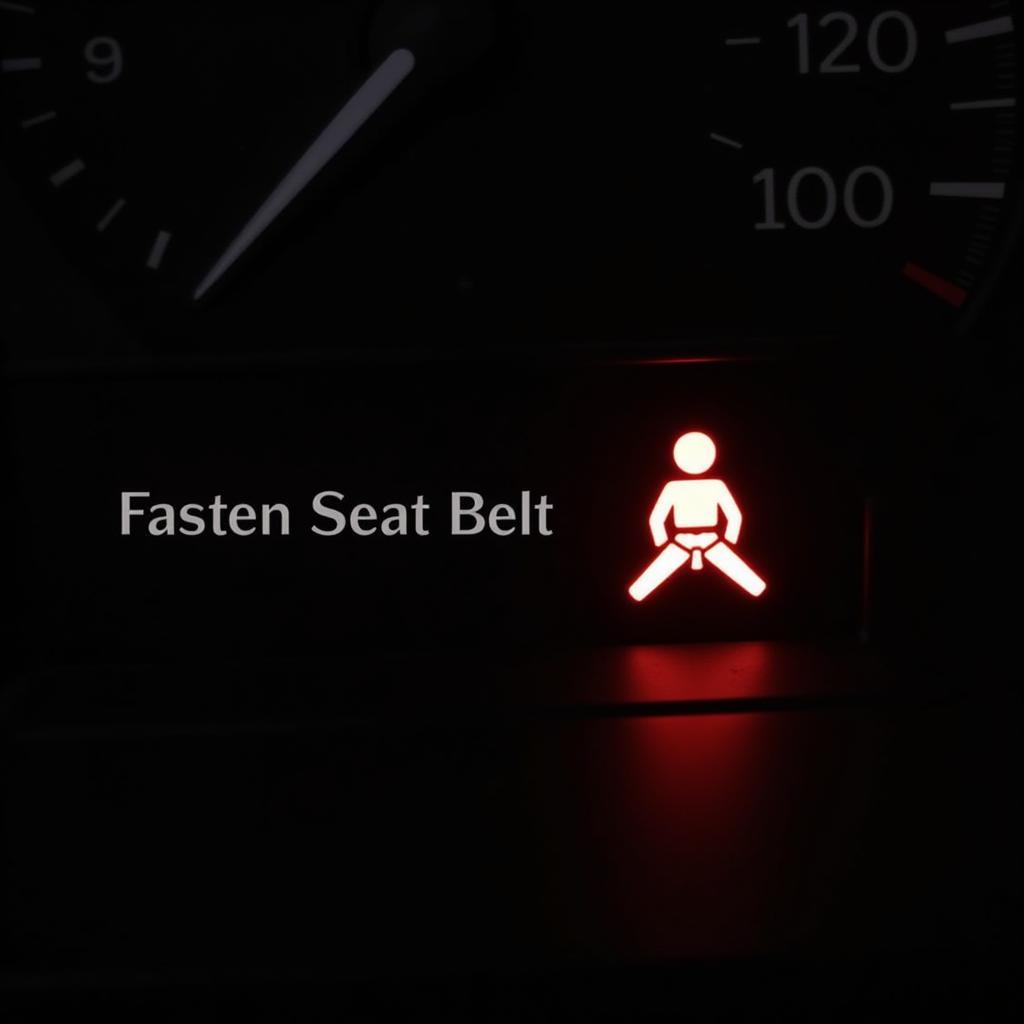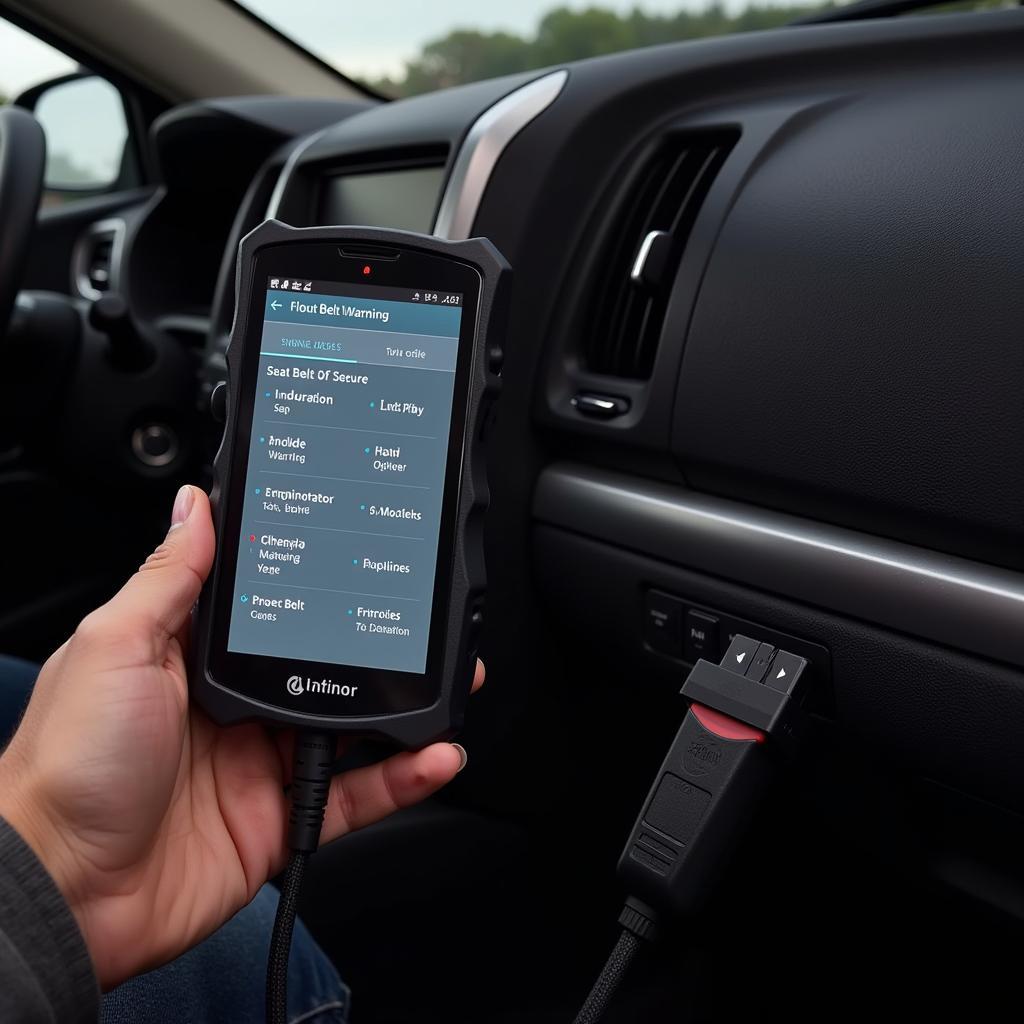The oil warning light on your Seat Ibiza dashboard is a crucial indicator of your engine’s health. Seeing it illuminate can be alarming, but don’t panic! This comprehensive guide will walk you through understanding what triggers the oil warning light, what it could mean, and the steps you can take to address the issue.
Understanding the Seat Ibiza Oil Warning Light
The oil warning light, often depicted as a classic oil can symbol, signals a problem with the engine’s oil system. This system is responsible for lubricating moving parts, reducing friction, and preventing overheating. When this light comes on, it’s your car’s way of telling you something needs attention.
Common Reasons Your Seat Ibiza Oil Light is On
There are several reasons why your Seat Ibiza’s oil warning light might be on. Here are the most common culprits:
- Low Oil Level: This is the most frequent cause. If your engine oil level drops below the minimum required, the sensor will trigger the warning light.
- Low Oil Pressure: This is a more serious issue indicating the oil pump may not be circulating oil effectively, leading to inadequate lubrication.
- Faulty Oil Pressure Sensor: Like any sensor, the oil pressure sensor itself can fail. A faulty sensor might give a false warning, even if your oil level and pressure are fine.
- Worn Oil Pump: Over time, the oil pump can wear out, reducing its efficiency in circulating oil, leading to low oil pressure.
- Blocked Oil Filter: A clogged oil filter restricts oil flow, potentially triggering the warning light. Regular oil and filter changes help prevent this.
What to Do When Your Oil Warning Light Comes On
1. Safety First: If the warning light comes on while driving, safely pull over as soon as possible and turn off the engine. Continuing to drive with low oil pressure or level can cause severe engine damage.
2. Check the Oil Level: With the engine off and cool, locate the engine oil dipstick, usually identified by a brightly colored handle. Pull out the dipstick, wipe it clean, reinsert it fully, and then remove it again. The oil level should be between the minimum and maximum markers.
3. Add Oil (If Necessary): If the oil level is low, carefully add the recommended oil type for your Seat Ibiza. Consult your owner’s manual for the specific oil type and capacity. Avoid overfilling.
4. Inspect for Leaks: Visually inspect the engine bay and the ground beneath your car for any signs of oil leaks. Leaks can contribute to low oil levels and require immediate attention.
When to Seek Professional Help
If the oil warning light remains on after adding oil, or if you notice any of the following, seek professional help immediately:
- Engine Noises: Unusual noises like knocking or grinding sounds from the engine
- Oil Pressure Gauge Reading Low (if equipped): Some Seat Ibiza models have an oil pressure gauge. If the reading is consistently low, it’s a sign of trouble.
- Oil Light Flickers or Stays On: A flickering or persistently illuminated oil light even after addressing the oil level indicates a deeper issue.
Preventative Measures for a Healthy Engine
- Regular Oil Changes: Adhering to the recommended oil change intervals for your Seat Ibiza is crucial. Consult your owner’s manual for the specific mileage or time-based intervals.
- Use High-Quality Oil and Filters: Using the correct oil grade and a high-quality oil filter ensures optimal engine lubrication and protection.
Expert Insight
“Ignoring an oil warning light can lead to catastrophic engine failure,” warns John Miller, a seasoned automotive engineer specializing in European vehicles. “Addressing oil-related issues promptly is essential for maintaining the longevity and performance of your Seat Ibiza.”
Conclusion
The oil warning light on your Seat Ibiza is a crucial indicator of your engine’s well-being. By understanding its signals and responding appropriately, you can prevent potential engine damage and keep your car running smoothly for miles to come. Remember, timely maintenance and professional attention when needed are key to a healthy and happy engine.


